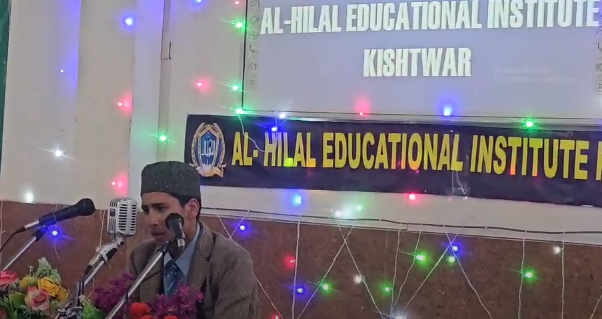Grand Islamic institution Darul Uloom Raheemia Kashmir First-Ever Islamic University on Deoband Pattern
Bandipora, a picturesque township nestled in the foothills of the snow-clad Harmukh peaks and overlooking the serene Wular Lake, is embarking on a transformative journey. Long known for its historical significance, literary richness, and intellectual contributions, the town is now taking a monumental step in the realm of education and faith. The establishment of an Islamic University on the revered Deoband pattern marks a turning point not only for Bandipora but also for the entire region of Jammu and Kashmir.
The Legacy of Bandipora: A Hub of Learning and Culture
Historically, Bandipora was a thriving centre for trade and literature, boasting an illustrious past that extended well beyond the borders of Kashmir. The town produced scholars and intellectuals of great repute, including the renowned historian Hassan Khoehami. Before 1947, Bandipora’s prominence as a cultural and educational hub was unmatched. However, post-partition upheavals led to its gradual neglect, relegating it to a “far-flung, backward area.” Despite these challenges, the township maintained its literary essence, achieving one of the highest literacy rates in Jammu and Kashmir.
The establishment of an Islamic University in Bandipora draws inspiration from its historical legacy. It aims to revive the intellectual and spiritual traditions that once defined the region, addressing the long-standing need for higher Islamic education in the predominantly Muslim state.
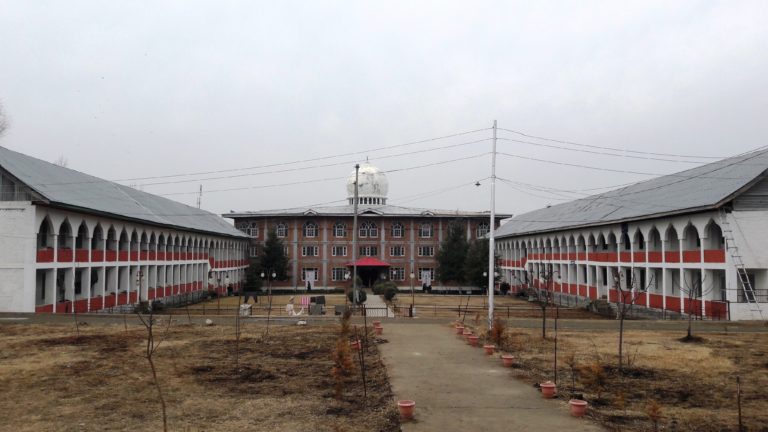
Darul Uloom Raheemia: A Journey of Faith and Knowledge
At the heart of this historic leap lies Darul Uloom Raheemia, an institution that has been a beacon of Islamic education in Bandipora since its inception in September 1979. Initially launched as “Madrasah Islamia Arabia” after the renaming of Islamic Public School, the institution began with modest resources. With only 11 students, three teachers, and an annual budget of Rs 11,000, its mission was clear: to impart Islamic teachings and revive the spiritual consciousness of the community.
Under the visionary leadership of Maulana Muhammad Rahmatullah Qasmi, an alumnus of the prestigious Darul Uloom Deoband, the institution has grown exponentially. By 1994, the student strength had increased to 225, supported by 37 staff members. The annual budget had surged to Rs 13 lakh, reflecting the community’s trust and commitment to the cause. Over the years, Darul Uloom Raheemia has produced 73 Hafiz-e-Quran, 22 advanced Arabic scholars, and countless students proficient in Quranic recitation and Islamic jurisprudence.
The Vision: A Full-Fledged Islamic University
The transformation of Darul Uloom Raheemia into a full-fledged Islamic University is a dream nurtured by Maulana Rahmatullah and the institution’s dedicated management. Modelled on the iconic Darul Uloom Deoband, this university aims to become a centre of excellence in Islamic education, with a modern approach to teaching and learning.
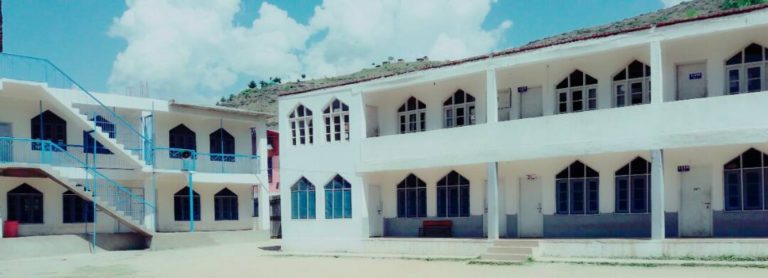
Three Main Wings of the University:
- Hadees College: Focused on the sayings and traditions of Prophet Muhammad (PBUH).
- Tafseer College: Dedicated to the interpretation and understanding of the Quran.
- Fiqah College: Specialising in Islamic jurisprudence and law.
These wings will offer a comprehensive curriculum that balances traditional Islamic studies with contemporary educational methodologies, ensuring that graduates are well-equipped to address the challenges of modern society.
Facilities and Infrastructure
The proposed Islamic University promises state-of-the-art facilities to create a conducive environment for learning and spiritual growth. Some of the key features include:
- Hostel Accommodation: Housing for 1,000 students, fostering a sense of community and discipline.
- Grand Mosque: A mosque with a capacity for 1,000 worshippers, expandable to accommodate 5,000 during congregations.
- Family Quarters: One hundred family quarters and single-room sets to support the needs of staff and students’ families.
- Library and Reading Room: A fully equipped library with an attached reading room to encourage scholarly pursuits.
- Guest House: A welcoming space for visitors and dignitaries.
The institution also plans to integrate modern amenities such as a water tank and other essential infrastructure to ensure the seamless operation of the university.
A Remarkable Act of Generosity
One of the most inspiring aspects of this initiative is the story behind the acquisition of land for the university. The management of Darul Uloom Raheemia faced a significant challenge in finding suitable land for the expansion. The existing premises were surrounded by a graveyard, a government hospital, a stream, and army barracks, leaving no room for growth. An appeal for land donation was published in the institution’s magazine, Al-Noor, in July 1993.

In a heartwarming turn of events, Aziz-u-Nisa, a pious widow in her eighties, came forward to donate her 48 canals (6 acres) of land for the cause. Her selfless act ensured that the dream of an Islamic University could move closer to reality. Tragically, she passed away shortly after formalising the donation, but her legacy lives on. She was laid to rest in a corner of the donated orchard, as per her wishes. Aziz-u-Nisa’s contribution is a testament to the enduring spirit of community and faith.
A Centre of Independent Learning
One of the defining principles of Darul Uloom Raheemia and the proposed university is its independence. Maulana Rahmatullah has emphasized that the institution has no affiliations with any political or non-political organisation. This independence ensures that the focus remains solely on imparting quality education and fostering a deeper understanding of Islam.
The curriculum at the university will continue to prioritise core Islamic subjects such as:
- Tafseer: Interpretation of the Quran.
- Hadees: Teachings and traditions of Prophet Muhammad (PBUH).
- Fiqah: Islamic jurisprudence.
- Tajweed-u-Kirat: Proper recitation of the Quran.
These disciplines, complemented by modern teaching methods, will prepare students to become well-rounded individuals capable of contributing meaningfully to society.
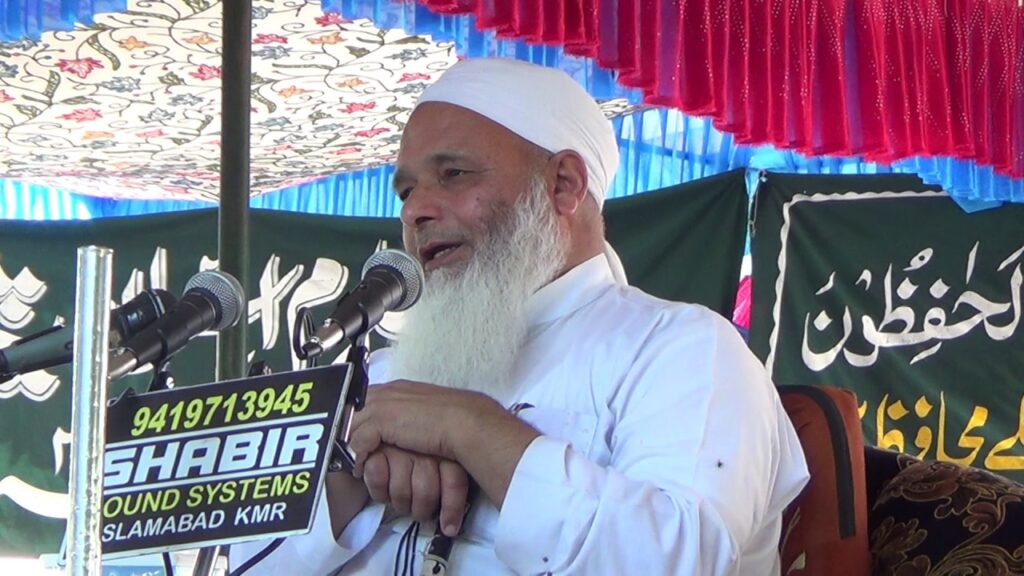
Community Support and Financial Sustainability
The success of this ambitious project hinges on the unwavering support of the Muslim community in Jammu and Kashmir. The institution relies solely on donations to meet its financial needs. The overwhelming response to the appeal for land is indicative of the community’s commitment to this noble cause. With continued support, the Islamic University is poised to become a beacon of knowledge and spirituality.
Reviving Bandipora’s Glory
The establishment of this Islamic University is not just an educational milestone but also a cultural renaissance for Bandipora. It signifies the revival of the town’s historical role as a centre of learning and intellectual discourse. The university will attract students, scholars, and visitors from across the region, fostering an exchange of ideas and enriching the local community.
Moreover, the project underscores the resilience and determination of the people of Bandipora. Despite decades of neglect and challenges, the town has retained its literary and spiritual essence. The Islamic University is a symbol of hope and progress, reflecting the aspirations of a community that values education and faith.
Challenges and the Road Ahead
While the journey to establish the Islamic University is filled with promise, it is not without challenges. Securing sufficient funds for construction and operational costs remains a significant hurdle. Additionally, the management must ensure that the institution upholds its commitment to independence and quality education.
Collaboration with established institutions such as Darul Uloom Deoband will be crucial in shaping the university’s academic and administrative framework. By learning from the experiences of similar institutions, Darul Uloom Raheemia can position itself as a model for Islamic education in the region.
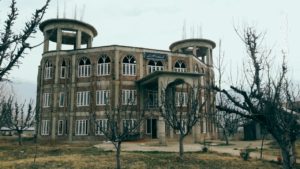
Conclusion: A Transformative Vision
The establishment of the first-ever Islamic University in Bandipora on the Deoband pattern is a historic leap for the township and Jammu and Kashmir as a whole. It is a testament to the power of vision, faith, and community support. This initiative not only addresses the pressing need for higher Islamic education but also revives the rich intellectual and cultural heritage of Bandipora.
As the university takes shape, it will inspire generations to come, nurturing scholars, leaders, and individuals who embody the principles of knowledge, compassion, and spirituality. Bandipora’s leap into the future is firmly rooted in its past, creating a legacy that will shine for years to come.
You Might Also Like:
Al-Tilmeez: A Pioneering Arabic Literary Journal from Jammu and Kashmir
Dr. Muzaffar Hussain Nadvi An Esteemed Arabic and Islamic Scholar from Kashmir

